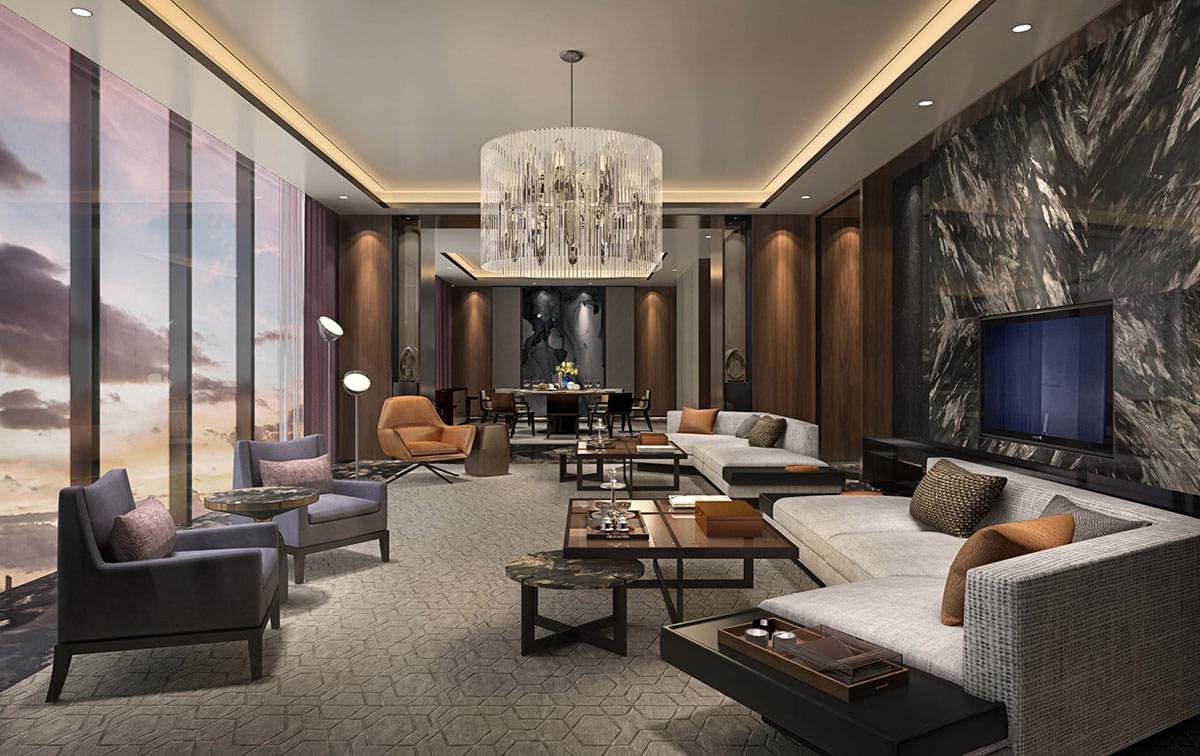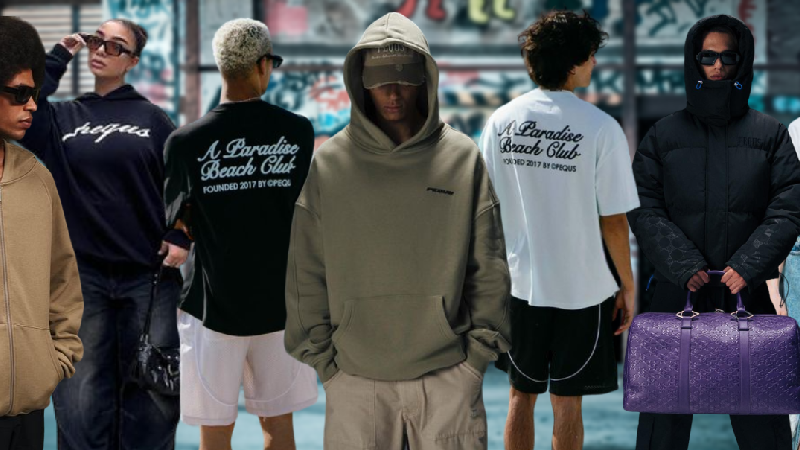Introduction
Hotels are more than just places to stay; they are experiences waiting to unfold. Every element, from the lobby design to the guest room furnishings, contributes to that experience. Among these elements, customized furniture stands out as a game-changer in hotel design. This tailored approach doesn’t just transform spaces—it tells a story and creates an atmosphere that captures guests’ attention.
Imagine walking into a hotel where each piece of furniture is meticulously crafted to reflect the local culture or brand identity. The unique designs immediately draw you in, making your stay memorable long after you’ve checked out. Customized furniture offers hotels a distinct advantage in creating environments that resonate with their target audience while also reinforcing their brand’s values. Incorporating a Venetian pergola into outdoor spaces can further elevate this experience. With its classic yet contemporary design, a Venetian pergola provides an elegant and functional space for guests to relax, enjoy the surroundings, and immerse themselves in the atmosphere of the hotel.
As we delve deeper into this transformative trend, you’ll discover how customized furniture enhances not only aesthetic appeal but also functionality and guest satisfaction. Whether you’re an interior designer or a hotel manager seeking fresh ideas for your property, understanding the ins and outs of customized furniture can elevate any space dramatically.
Benefits of Using Customized Furniture in Hotels
Customized furniture allows hotels to create a unique identity. Each piece can reflect the local culture and aesthetic, connecting guests to their surroundings.
Functionality is another key benefit. Hotels can design pieces that optimize space and enhance guest comfort. This tailored approach leads to improved usability in rooms and common areas.
Durability plays a crucial role as well. Customized options are often built with high-quality materials suited for heavy use, ensuring longevity over mass-produced items.
Another advantage is sustainability. Hotels can choose eco-friendly materials aligned with their values while reducing waste through made-to-order production processes.
Customized furniture fosters brand loyalty by creating memorable experiences for guests. When visitors feel special due to thoughtful design, they’re more likely to return or recommend the hotel to others.
Customized Furniture Trends in the Hospitality Industry
The hospitality industry is embracing a wave of creativity with customized furniture. Hotels are moving away from generic pieces, opting instead for unique designs that tell a story. This trend enhances the overall ambiance and reflects the local culture.
Sustainable materials are becoming increasingly popular in custom fittings. Eco-friendly options like reclaimed wood and recycled metals not only appeal to environmentally conscious guests but also add an organic touch to interiors.
Multifunctional furniture is another growing trend. With space at a premium, hotels are investing in pieces that serve multiple purposes—think couches that convert into beds or tables with hidden storage.
Bold colors and eclectic patterns are making their mark as well. Custom upholstery allows properties to showcase personality, making every room feel distinct and inviting. These choices create memorable experiences for guests, ensuring they leave with lasting impressions.
Case Studies: Successful Implementation of Customized Furniture in Hotels
The success of customized furniture in hotels can be seen through various real-life examples. One notable case is the Ace Hotel chain, which utilizes bespoke pieces that reflect local culture. Each location features unique designs inspired by the surrounding community, creating a deep connection with guests.
Another example is the Penta Hotels brand, known for its playful and functional decor. Here, custom furniture elements like oversized bean bags and modular seating are designed to encourage social interaction among guests. This approach transforms public spaces into vibrant gathering spots.
Additionally, The Standard Hotel in New York showcases tailored furnishings that blend sophistication with comfort. Their innovative use of colors and textures not only enhances aesthetics but also improves usability across guest accommodations.
These cases highlight how customized furniture can elevate hotel design while fostering memorable experiences for visitors. Each project demonstrates a different way to engage guests through thoughtful design choices reflective of their surroundings.
The Impact of Customized Furniture on Guest Experience
Customized furniture significantly transforms the guest experience in hotels. When guests walk into a room, they immediately notice the unique design elements tailored to create a specific ambiance. This attention to detail sets the tone for their stay.
Personalized pieces can evoke a sense of comfort and belonging. Visitors appreciate furnishings that reflect local culture or theme, making them feel more connected to their surroundings.
Moreover, customized items often enhance functionality—think built-in storage solutions or adjustable lighting features—that cater directly to guest needs. Such thoughtful designs make stays more convenient and enjoyable.
The overall aesthetic appeal plays an essential role too. Beautifully crafted furniture attracts positive feedback on social media platforms, boosting online visibility and encouraging new bookings through word-of-mouth recommendations from satisfied guests.
Each element contributes not just to comfort but also enhances memorable experiences, fostering loyalty among travelers who seek something beyond standard hotel decor.
Cost Considerations for Hotels Considering Customized Furniture
When hotels think about customized furniture, costs often come to the forefront. Initial investments may seem high compared to off-the-shelf options. However, this expense can bring lasting value.
Custom pieces are built to last and tailored specifically for hotel needs. They can eliminate frequent replacements that standard items require, ultimately saving money over time.
Moreover, these unique designs enhance brand identity. A distinctive look can attract more guests who appreciate a personalized experience, boosting occupancy rates.
Hotels should also consider long-term maintenance costs. Customized furniture is typically made from higher-quality materials, which reduces wear and tear and lowers upkeep expenses in the long run.
Budgeting for customized projects might involve unexpected variables like design fees or delivery charges. Ensuring transparency with suppliers will help manage these elements effectively without overspending.
FQAs
What should I consider when choosing customized furniture for my hotel?
Think about your brand’s identity first. The right pieces reflect your hotel’s style and ethos. Functionality is key, too—ensure the furniture meets guests’ needs comfortably.
Are there specific materials recommended for durability?
Yes! Opt for high-quality materials that withstand heavy use. Hardwoods, metal frames, and stain-resistant fabrics are excellent options for maintaining aesthetics over time.
How long does it take to design and produce customized furniture?
Timing varies based on complexity. Generally, allow several weeks to a few months from concept to delivery. Planning ahead ensures you meet renovation schedules without delays.
Is investing in customized furniture worth it?
Absolutely! Customized pieces enhance guest experience while differentiating your hotel from competitors. They can also lead to positive reviews and increased repeat bookings.
Can I collaborate with designers during the customization process?
Definitely! Collaborating with interior designers can ensure that your vision aligns perfectly with practical functionality.
Conclusion
When it comes to hotel design, the choices you make can significantly impact both aesthetics and functionality. Customized furniture stands out as a key player in this regard. Not only does it help create a unique atmosphere, but it also enhances the overall guest experience.
The benefits are numerous. From tailored designs that reflect local culture to improved durability and comfort, customized furniture addresses diverse needs. It allows hotels to differentiate themselves in a competitive market while maintaining brand identity.
As trends evolve within the hospitality industry, customized furniture continues to take center stage. The focus is on sustainability, flexibility, and personalization—factors that resonate deeply with modern travelers.
Successful case studies highlight how well-executed custom pieces elevate spaces—from luxury resorts featuring artisanal designs to boutique hotels showcasing bespoke furnishings that tell a story. Such initiatives not only draw guests but often result in glowing reviews and repeat visits.
The influence of customized furniture extends beyond mere aesthetics; it shapes how guests feel during their stay. Thoughtfully designed environments foster relaxation and satisfaction, leading to memorable experiences that guests cherish long after they leave.
Cost considerations play an important role for any hotelier contemplating such investments. While initial expenses may be higher than purchasing off-the-shelf items, the long-term benefits often outweigh these costs through enhanced guest loyalty and increased revenue opportunities.
With all these factors combined, it’s clear why more hotels are gravitating toward customized solutions for their furnishing needs. Creating inviting spaces becomes easier when every piece tells a part of your story—a narrative that resonates with visitors from around the world.










